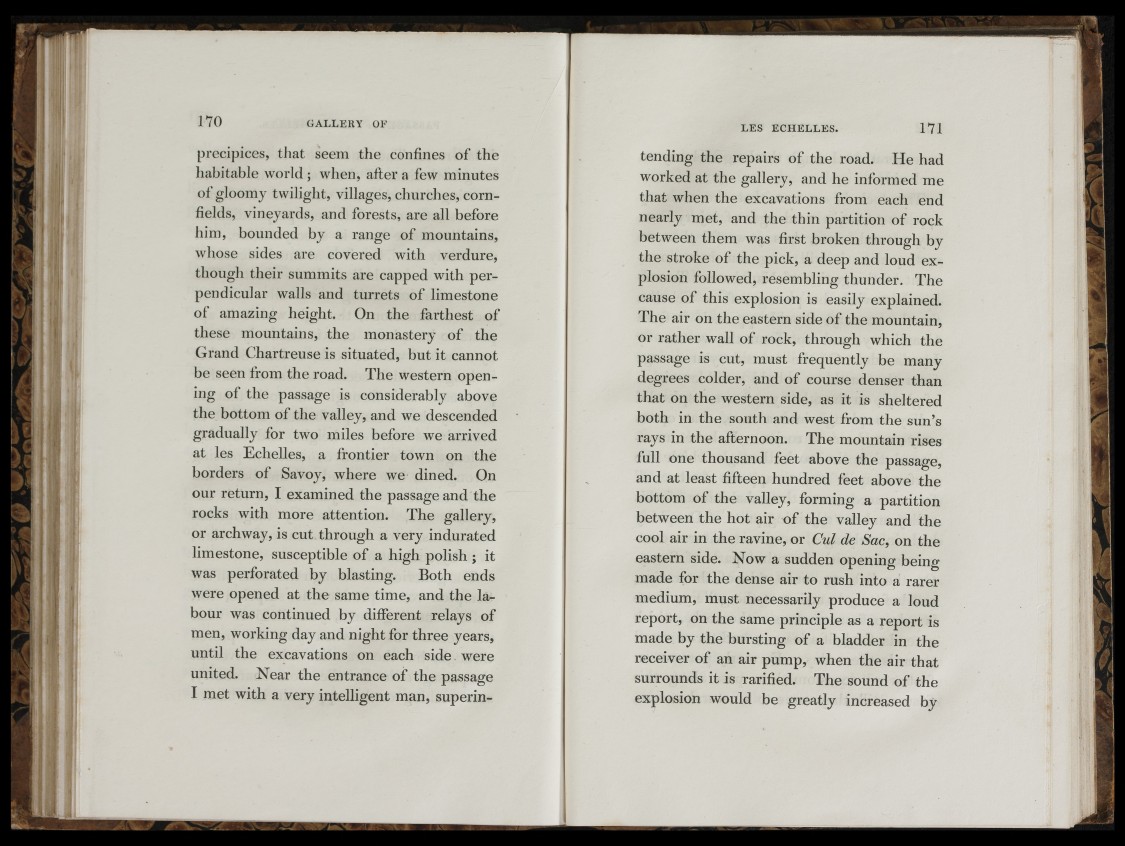
m
-"»«i I ^
precipices, that seem the confines of the
habitable world ; when, after a few minutes
oi gloomy twilight, villages, churches, cornfields,
vineyards, and forests, are all before
him, bounded by a range of mountains,
whose sides are covered with verdure,
though their summits are capped with perpendicular
walls and turrets of limestone
of amazing height. On the farthest of
these mountains, the monastery of the
Grand Chartreuse is situated, but it cannot
be seen from the road. The western opening
of the passage is considerably above
the bottom of the valley, and we descended
gradually for two miles before we arrived
at les Echelles, a frontier town on the
borders of Savoy, where we dined. On
our return, I examined the passage and the
rocks with more attention. The gallery,
or archway, is cut through a very indurated
limestone, susceptible of a high polish ; it
was perforated by blasting. Both ends
were opened at the same time, and the labour
was continued by different relays of
men, working day and night for three years,
until the excavations on each side were
united. Near the entrance of the passage
I met with a very intelligent man, superintending
the repairs of the road. He had
worked at the gallery, and he informed me
that when the excavations from each end
nearly met, and the thin partition of rock
between them was first broken through by
the stroke of the pick, a deep and loud explosion
followed, resembling thunder. The
cause of this explosion is easily explained.
The air on the eastern side of the mountain,
or rather wall of rock, through which the
passage is cut, must frequently be many
degrees colder, and of course denser than
that on the western side, as it is sheltered
both in the south and west from the sun’s
rays in the afternoon. The mountain rises
full one thousand feet above the passage,
and at least fifteen hundred feet above the
bottom of the valley, forming a partition
between the hot air of the valley and the
cool air in the ravine, or Cu/ de Sac, on the
eastern side. Now a sudden opening being
made for the dense air to rush into a rarer
medium, must necessarily produce a loud
report, on the same principle as a report is
made by the bursting of a bladder in the
receiver of an air pump, when the air that
surrounds it is rarified. The sound of the
explosion would be greatly increased by
f r ,
■ V
A
;A n »I 1